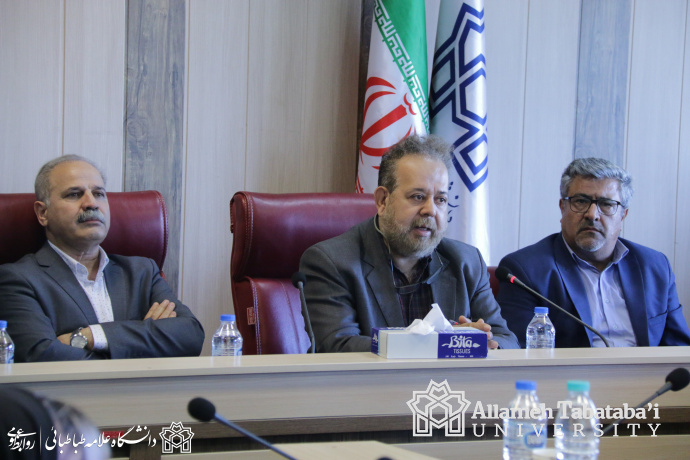International Workshop in Women's Information Literacy held at ATU

Report by the Directorate for International Academic Cooperation–
The international workshop on "Iranian Women's Information Literacy: Educational Requirements and Institutionalisation Methods" was held at the Faculty of Communication Sciences, Allameh Tabataba'i University (ATU).
On National Education Week's occasion, the international workshop on "Iranian Women's Information Literacy: Educational Requirements and Institutionalisation Methods" was organized by the UNESCO Chair on the Communication of Science and Technology at ATU's Faculty of Communication Sciences. The workshop aimed at empowering Iranian women by improving their information literacy.
The workshop was held on five main topics, namely "Women's Information Literacy and Health", "Women's Information Literacy and Social Damages", "Women's Information Literacy and Political and Social Participation", "Women's Information Literacy and Entrepreneurship," and "Women's Information Literacy and Creativity".
Dr Ali Asghar Kia, Dean of the Faculty of Communication Sciences and Secretary of the UNESCO Chair on the Communication of Science and Technology, and Dr Seyed Reza Naghib al-Sadat, Coordinator of the IFAP Project on Status of Women's Information Literacy in Iran. Academics and researchers in Women's Studies also attended the international workshop.
At the beginning of the workshop, Dr Kia expanded on the activities conducted at the UNESCO Chair and its headquarters in Iran and the cooperation formed between ATU and UNESCO during recent years. He then talked about the status of Iranian women's information literacy and the efforts made by the Chair to provide skills-oriented and practical courses and workshops.
Dr Naghib al-Sadat then presented details on the submission of proposals and the national assessments under ATU and other regulating bodies' supervision and said, "This project was selected from among 56 proposals submitted from all over the world in the area of Information Literacy. The Faculty of Communication Sciences is the executor of the project."
He added, "There are still various forms of inequality globally, even in developed countries. Today, inequality has intensified in developing countries. Considering that information and communications technology and the resulting information are expected to break monopolies, increase productivity, expand knowledge, network the economy, enhance the efficiency of the transfer of knowledge, thoughts and ideas, accelerate the innovation process, reduce costs and the gradual disappearance of geographical boundaries, assessment of its effect on women's participation rates is of considerable importance."
Dr Naghib al-Sadat, then, continued: "One of the positive aspects of information and communications technology discussed in this research project is its role in increasing women's participation in activities requiring information literacy as an alternative variable for gender inequalities. In the project, several educational workshops have been scheduled to be held on different themes for Iranian women."
Maintaining that information literacy is sometimes mistaken for librarianship, IFAP Project Coordinator said: "Women's information literacy is comprehensively defined as 'all knowledge requirements for empowering women,' and it is the platform where media literacy is implemented."
Other speakers of the workshop the titles of their speeches are as follows:
- Dr Omid Ali Masoudi, 'Information Literacy: Dimensions and Requirements"
- Dr Zahra Naserzadeh, "Women's Information Literacy: Health and Its Dimensions"
- Dr Samira Khatibzadeh, "Women's Information Literacy and Social Damages"
- Dr Zahra Bagheri, "Women's Information Literacy: Women's Demands".
Information literacy and its requirements in the field of health; characteristics of an information literate person; information needs; production and distribution of content in an information society; achieving, maintaining and promoting development; components and indicators of health; direct and indirect education methods; results of lack or deficiency in women's information literacy; designing cultural content creation models for women; relations between the cyberspace and culture creation; challenges of the cyberspace to intra-family relationships; women's socio-political participation; identification of the discourses women's demands on Instagram and the ways to follow up on those demands were among the other topics discussed in the workshop.


